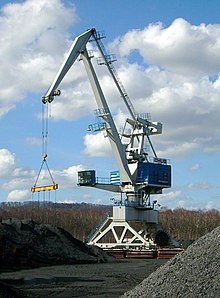 Recent figures show that levels of unemployment among women are at their highest since the 1980s, with more redundancies set to come in the New Year. Due to massive public sector and retail industry cuts and a significant increase in childcare costs, the employment rate and financial position of women with children in the UK is now lower than in most other OECD countries, where we currently rank 19th. The Office for Budget Using Math As An Electrician and Responsibility recently predicted that overall unemployment will rise from 8.3% to 8.7% in 2012, equating to a loss of approximately 120,000 jobs which could increase to 710,000 by 2017, while the economy itself will only grow 0.9%. With two-thirds of public sector and retail jobs held by women and the looming possibility of a double-dip recession affecting high-street spending, the future does not look bright.
Recent figures show that levels of unemployment among women are at their highest since the 1980s, with more redundancies set to come in the New Year. Due to massive public sector and retail industry cuts and a significant increase in childcare costs, the employment rate and financial position of women with children in the UK is now lower than in most other OECD countries, where we currently rank 19th. The Office for Budget Using Math As An Electrician and Responsibility recently predicted that overall unemployment will rise from 8.3% to 8.7% in 2012, equating to a loss of approximately 120,000 jobs which could increase to 710,000 by 2017, while the economy itself will only grow 0.9%. With two-thirds of public sector and retail jobs held by women and the looming possibility of a double-dip recession affecting high-street spending, the future does not look bright.
Despite the bleak outlook, the construction industry is crying out for more female workers with many consumer polls indicating that homeowners are more comfortable with women in their homes because they find them more trustworthy and less intimidating. Specifically, many female homeowners find the experience of having male workers in their homes not preferable, with 50% saying that they would be more comfortable with a female contractor. In research conducted by the National Inspection Council for Electrical Installation Contracting (NICEIC), 47% of women felt intimidated when having to deal with a male electrician and 31% said they would be more likely to trust a woman’s opinion. 11% confess that they will only have a man around if they are not alone. In light of these statistics, now may be the perfect time for women to retrain with a gas, electrical or plumbing course and enter a new industry which offers healthy prospects.
In the current employment climate, women with manual skills are set to be more successful than those with administrative skills. According to a report from Working Links, vacancies are more numerous in areas of manual trade such as welding and construction, whereas administrative, sales and customer service positions are few and far between, especially in heavily affected areas such as the East Midlands. Opportunities for women in other hands-on professions such as transport driving and hairdressing have also risen in recent years, although of course, the picture varies from region to region.
RF Training is a vocational training provider currently based in Birmingham and Manchester. We Can I Become An Electrician At 40 offer plumbing courses, electrician training, and gas courses to a wide selection of students.
Construction

